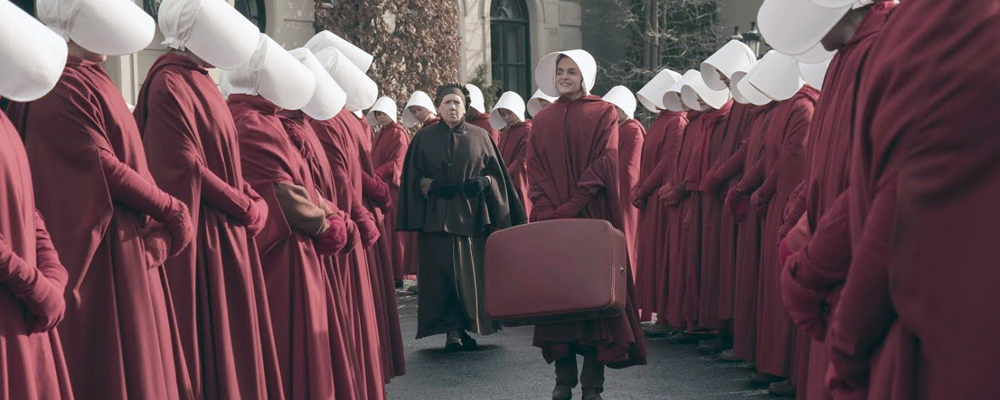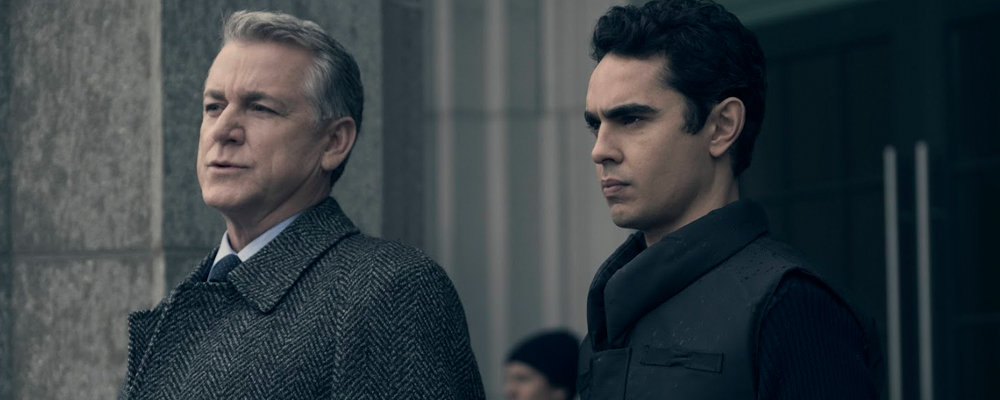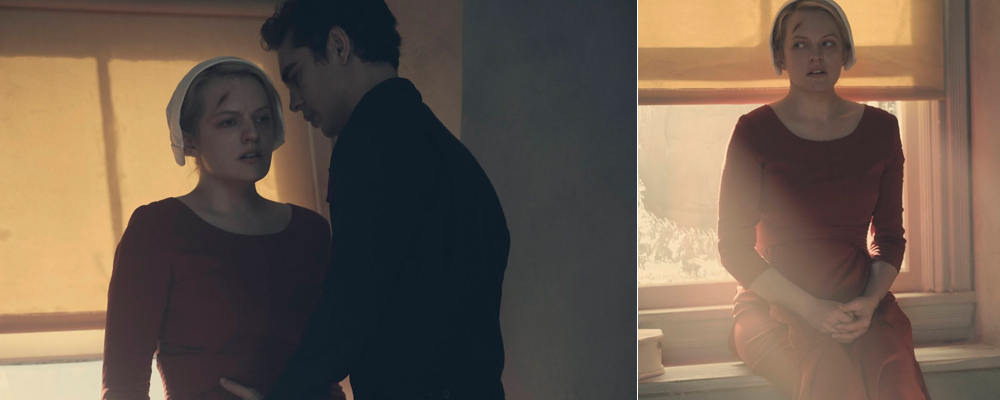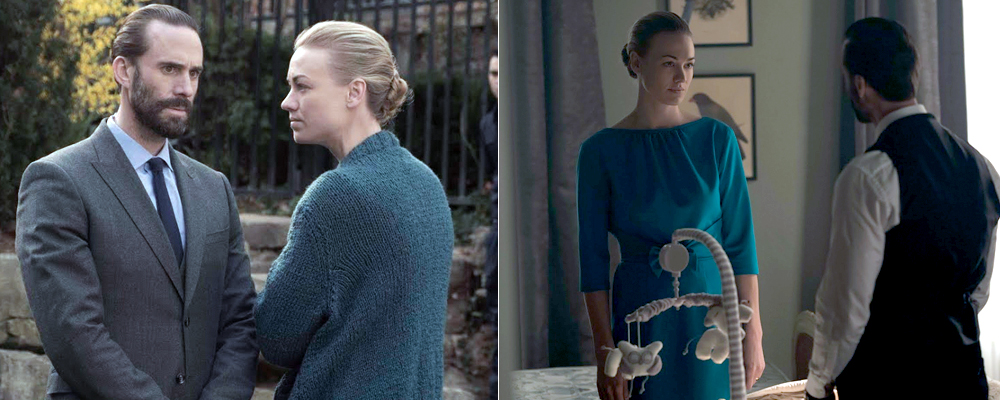‘The Handmaids Tale’ Concludes First Season With a Message of Hope
Elizabeth Stanton
Intense, disturbing, and oftentimes skirting too close to reality for comfort, the first season of “The Handmaid’s Tale” on Hulu has provided an excellent season of television, and a tease for the highly anticipated second season.
Based on the novel by Margaret Atwood, “The Handmaid’s Tale” is set in the new society of Gilead, an Old Testament inspired theocratic regime that has overthrown the United States government and subjugated women, sorting them into different categories. This includes Wives, Marthas (house servants), Aunts (elderly overseers), and Handmaids, whose sole purpose is to provide children for the infertile ruling class. Offred (Elisabeth Moss) is one of these Handmaids, and through her struggle to survive a brutal regime, we learn of the horrors inflicted upon women in this society, and the glimmers of resistance and hope that still shine through the darkness.
The world building the show did was effective, expanding beyond the scope of the novel’s limited POV from Offred. We get more information on the origins of Gilead, and the subtle and insidious ways the fundamentalist views slipped into society to completely upend it. Handmaids lives are strictly controlled, from where they go outside, to the “ceremony,” aka the ritualized monthly rape by their Commander (a male figurehead) in an attempt to produce a child. You feel the oppression and revel in the small moments of rebellion Offred and other Handmaids are able to provide themselves. For example, when Offred’s friend OfGlen (Alexis Bledel) steals a car part way through the season, the look of exhilaration on her face is a enough to bring a smile to your face, even knowing that she will be severely punished for her disobedience.
Characters from the novel are also expanded upon and given more background, the most effective of which was learning about The Commander’s wife, Serena Joy (Yvonne Strahovski). Before the revolution, she was a high-powered conservative author, who worked with her husband to orchestrate the coup that would ultimately subjugate her. In Gilead, women are forbidden to read or write, and we see her grapple with the consequences of her choices that led her to be just as restricted as the women she sought to control. As the series progresses, she grows jealous of Offred and The Commander’s (forced) relationship, her tightly wound bun unraveling in the season finale as she punishes Offred for choices she has no power over.
Offred is given more agency in the series as well, finding small and big ways to fight back. The season finale had her leading quietly leading her fellow Handmaids in refusing to stone one of their own to death. The group of women comes together in a powerful moment of protest and protection, and the spark of rebellion for the next season begins to spread.
Moss carried the series well as the often silenced Offred. Many scenes feature her alone, considering her existence and options, as voiceover provides insight into her thoughts, but even more scenes force her to modulate her emotions around the men and women who control her life. The camera is right in her face, capturing the nuances as she works through her thoughts and feelings to keep herself alive.
The entire cast of women deserve high praise, playing characters that are often pitted against each other in different ways in a world that devalues women entirely. Bledel does some of her best work as OfGlen, Offred’s friend who is cruelly punished for her homosexuality. For being mostly associated with her hyper-verbal “Gilmore Girls” performance, Bledel is here forced into silence. In the third episode, she gives a wordless performance that conveys pain, terror, anger, and a full gamut of emotions in a heart-wrenching display. Samira Wiley (late of “Orange is the New Black”)
Perhaps the only weak spots in the show are when it spread itself too thin trying to expand the novel. Most additions were effective, but the episodes that focused on male characters like June’s husband Luke (O-T Fagbenle), or driver and potential secret ally Nick (Max Minghella), felt distracting. This is a story about the women and what they’re going through, and it’s hard to sympathize with a character like Nick, who became part of the patriarchal hierarchy almost by accident.
Ending on a cliffhanger that has a modicum of hope, even as she’s being led into a van that could mean her death, season two of ‘The Handmaid’s Tale’ is poised to build on the story of Offred and the women who deserve to have their stories told.
“The Handmaid’s Tale” season 2 is expected in early 2018.




